
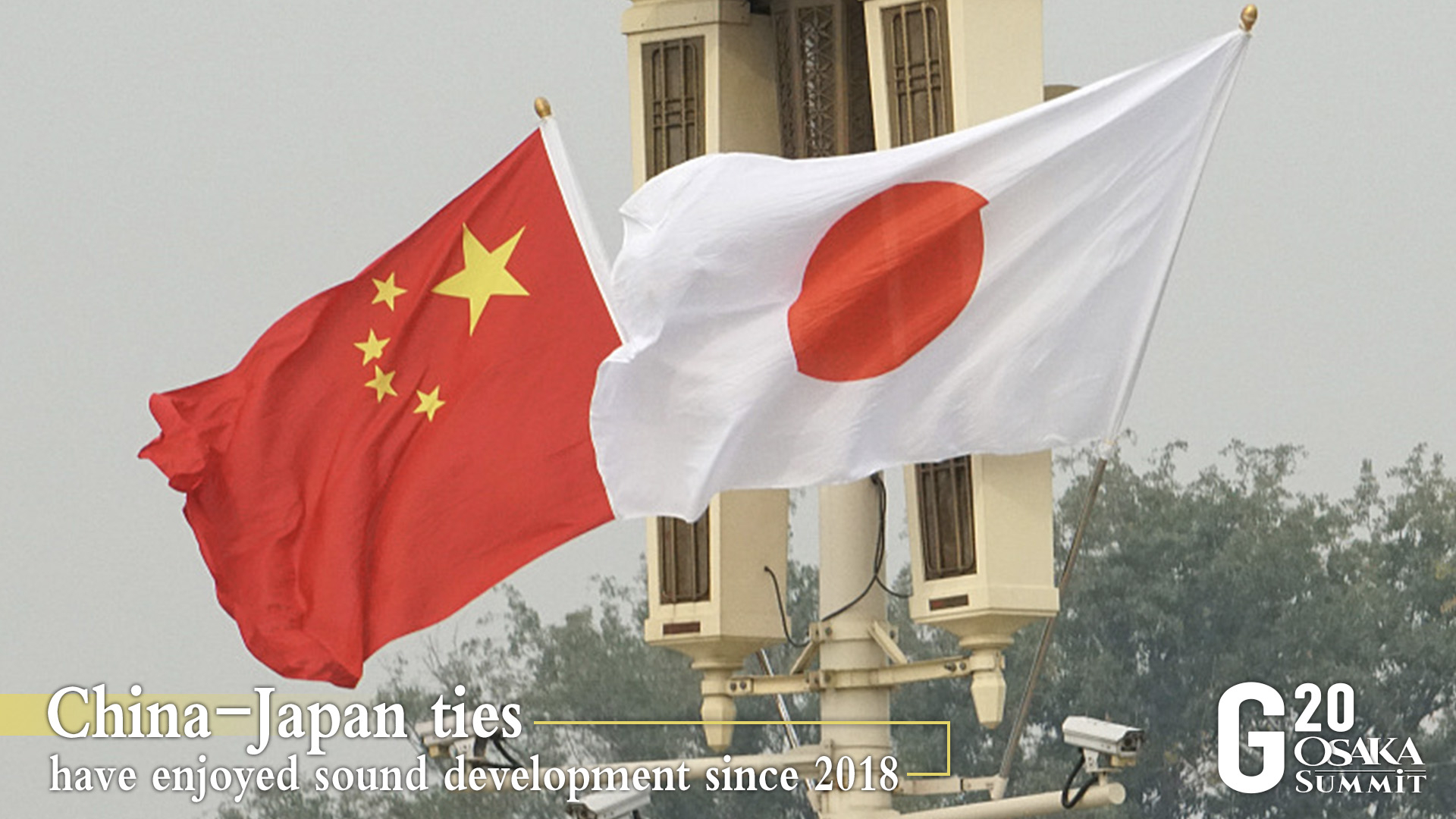
Chinese President Xi Jinping will attend the upcoming Group of 20 (G20) summit in Osaka, Japan and will meet with Japanese Prime Minister Shinzo Abe on the sidelines of G20 summit.
Read more:
Multilateralism to be stressed at G20 summit: Chinese Foreign Ministry
When meeting with China's newly appointed ambassador to Japan Kong Xuanyou earlier this month, Abe said he looks forward to meeting with Chinese President Xi Jinping at the G20 summit and is ready to work with Xi to jointly promote Japan-China relations.
Through joint efforts, China-Japan ties have witnessed sound development on the occasion of the 40th anniversary of the signing of the China-Japan Treaty of Peace and Friendship last year, which has brought China-Japan relations back on track.
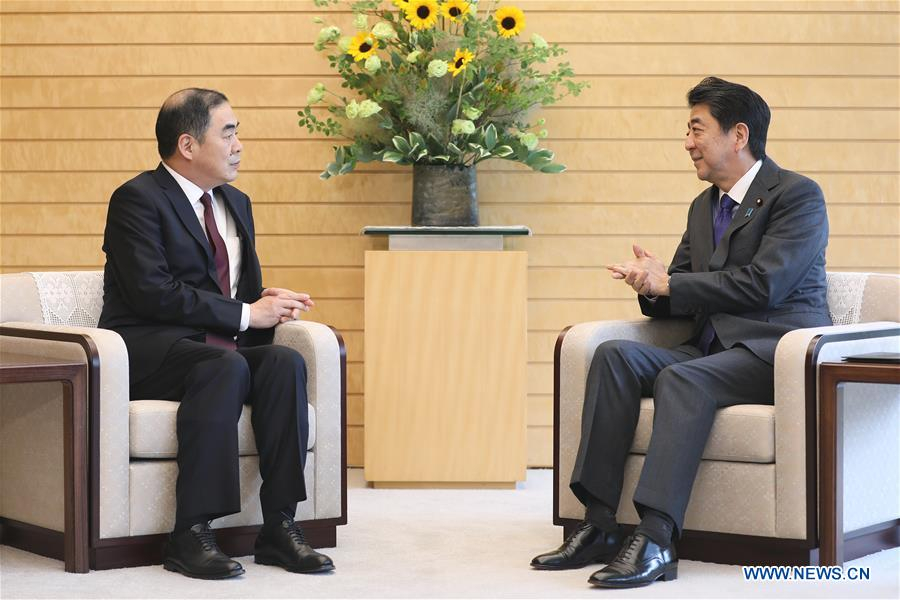
Chinese Ambassador to Japan Kong Xuanyou (L) meets with Japanese Prime Minister Shinzo Abe in Tokyo, Japan, June 11, 2019. /Xinhua Photo
High-level interaction
“China-Japan relations will enter a stage of stable development, where we will have more frequent exchanges in various fields and high-level interactions will come about naturally,"Chinese State Councilor and Foreign Minister Wang Yi said, speaking at a press conference during the second session of the 13th National People’s Congress in March 2019.
Chinese Premier Li Keqiang made an official visit to Japan from May 8 to 11 of the previous year, which was the first by a Chinese premier in eight years.
Japan received Premier Li with the highest standard, and Abe accompanied Li throughout his visit.
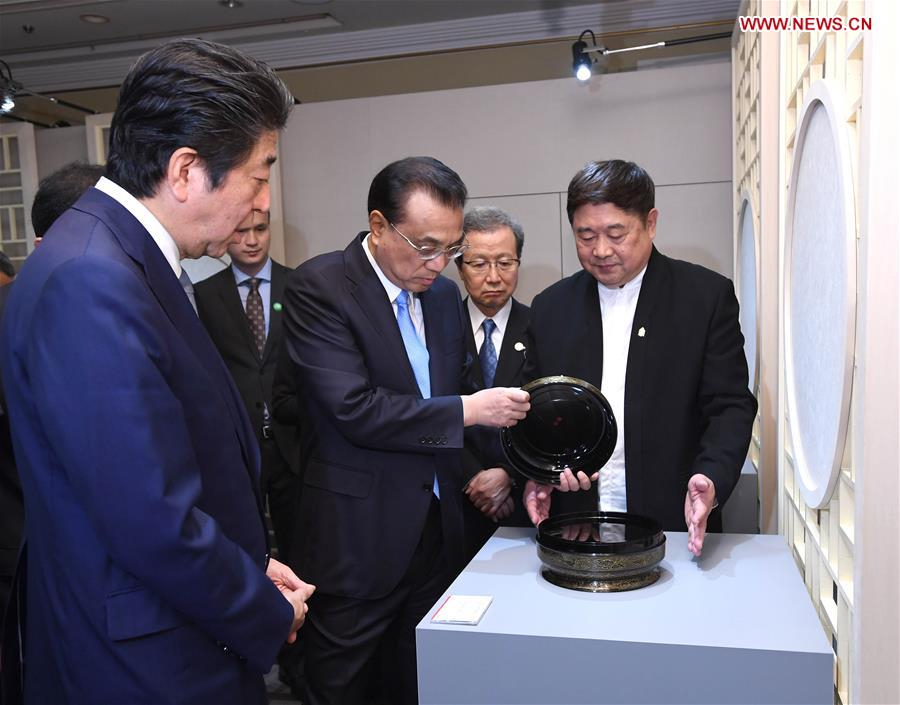
File photo: Chinese Premier Li Keqiang (C) and Japanese Prime Minister Shinzo Abe (L) visit an exhibition on cultural creations from the Palace Museum of China in Tokyo, Japan, on May 10, 2018. /Xinhua Photo
Abe then paid a three-day visit to China in October 2018, which was the first one by a Japanese prime minister since 2011.
When meeting with Abe in Beijing, President Xi noted that China-Japan ties were "back on track" and gained positive momentum with concerted efforts by both sides and urged Japan to play a more active role in the Belt and Road Initiative (BRI) cooperation.
Abe, for his part, indicated that the BRI had great potential for development, including third-party collaboration.
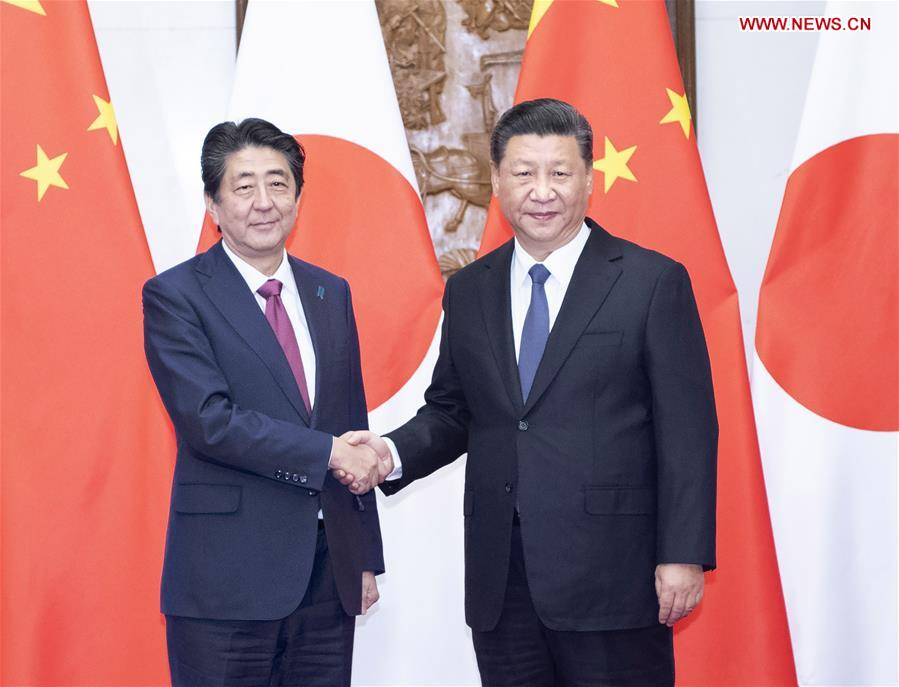
File photo: Chinese President Xi Jinping (R) meets with Japanese Prime Minister Shinzo Abe in Beijing, capital of China, Oct. 26, 2018. /Xinhua Photo
China and Japan held the fifth high-level economic dialogue in Beijing in April 2019, chaired by the Chinese foreign minister and his Japanese counterpart.
Yang Jiechi, a member of the Political Bureau of the Communist Party of China (CPC) Central Committee and director of the Office of the Foreign Affairs Commission of the CPC Central Committee, paid a visit to Japan in May and attended the sixth China-Japan high-level political dialogue.
From competition to cooperation
Prior to his visit, Abe had pledged to "shift from competition to coordination" between the two nations, which has been considered a sign that the Japanese side has changed its attitude toward China.

China-Japan bilateral trade volume reached 327.66 billion U.S. dollars in 2018, making China the largest trading partner with Japan.
During Li's visit, China and Japan signed a memorandum of understanding on third-party cooperation between the two sides. Abe also attended the first forum on third-party market cooperation in Beijing during his visit. Fifty plus cooperation agreements worth more than 18 billion U.S. dollars were signed, an indication that cooperation in this regard is bound to become a new pillar for pragmatic cooperation.
The People's Bank of China, the central bank, has also inked a bilateral currency swap agreement with its Japanese counterpart, a move aimed at enhancing financial stability in the two countries and facilitating bilateral economic and financial exchanges. The agreement will allow the two sides to swap a total of 200 billion yuan (about 28.78 billion U.S. dollars) for 3.4 trillion Japanese yen, and vice versa.
New era
During his meeting with Yang, Abe said he hoped his meeting with Xi at the G20 summit can push bilateral ties a step further and open a new era of Japan-China relations.
Two months earlier the Chinese foreign minister hailed what he said was Japan's "objective and rational view" of future bilateral development between the two countries.
"Experience shows that whenever Japan adopts an objective and rational view of China’s development and honors the various political principles already reached, the relationship will steer clear of obstacles and interference and enjoy a stable and bright outlook,” Foreign Minister Wang Yi said.
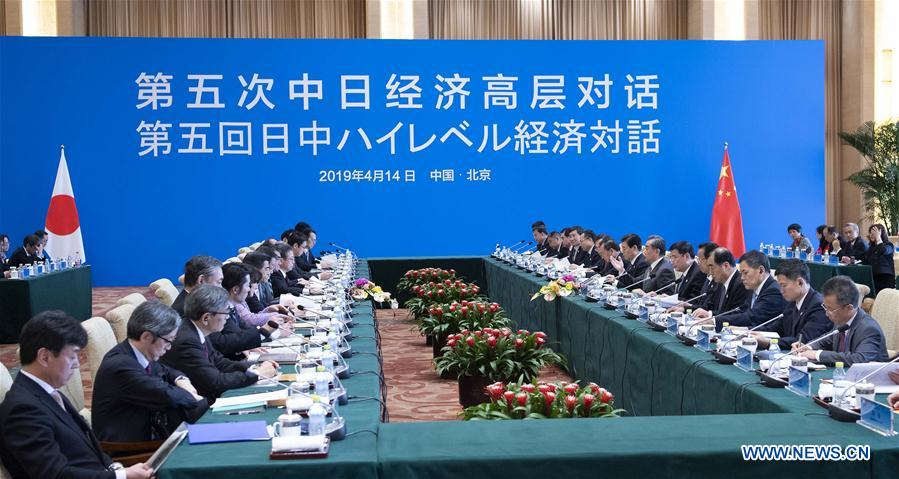
Chinese State Councilor and Foreign Minister Wang Yi co-chairs the fifth high-level economic dialogue between China and Japan with visiting Japanese Foreign Minister Taro Kono in Beijing, capital of China, April 14, 2019. /Xinhua Photo
When asked what efforts the two sides can make to further improve bilateral ties, Japanese Foreign Minister Taro Kono, in an exclusive interview with CCTV, said China and Japan, as the world’s second- and third-largest economies should solve global challenges shoulder to shoulder.
Upholding multilateralism and promoting economic integration of the Asia-Pacific region are issues of common concern for China and Japan, as the world economy has been facing increased risks and uncertainties.
Ambassador Kong believes the prospect of bilateral ties is optimistic. “If China and Japan work together to support the region’s economic development as well as its peace and stability, the region will surely unite and make great progress,” he said.
This sense of partnership will be even more important at the upcoming Group of 20 summit in Osaka, Kong added.

Copyright © 2018 CGTN. Beijing ICP prepared NO.16065310-3
Copyright © 2018 CGTN. Beijing ICP prepared NO.16065310-3